“IF YOU BRING HOME GOOD GRAPES, YOU WILL ALSO HAVE GOOD WINE.”
JÖRG LANIUS SPEAKS ABOUT HIS WINES AND HIS VINEYARD IN OBERWESEL.
Lanius-Knab
Mainzer Straße 38
55430 Oberwesel
| Phone | +49 (0)6744/8104 |
|---|---|
| Fax | +49 (0)6744/1537 |
| weingut@lanius-knab.de |
Office Hours
Mo-Sa 9-18 Uhr; April- Dez Sonn- und Feiertags 10-18 UhrOwner
Jörg Lanius
Cellarmaster
Jörg Lanius
Member Since
1995
Wine Area
10,50 acres
Grape Variety
92% Riesling, 8% Spätburgunder
Geology
Schieferverwitterungsböden mit lagenspezifischen Einschlüssen von Grauwacke & Buntsandstein
Growing Areas
Memberships
VDP: What is so special about your winery?
Jörg Lanius: Our entire winery is special: We live and work with our family in a modern winery in a village that has been growing wine for 2000 years. Our manor house is a Wilhelminian style villa with a two-storey vaulted cellar in which wine has been made for 150 years. Our steep slopes are planted with up to 70-year-old Riesling vines in a breathtakingly beautiful landscape. Our guests get an insight into the life of a winegrower, be it during a cellar tour or by helping in the vineyard. It couldn’t be more authentic!
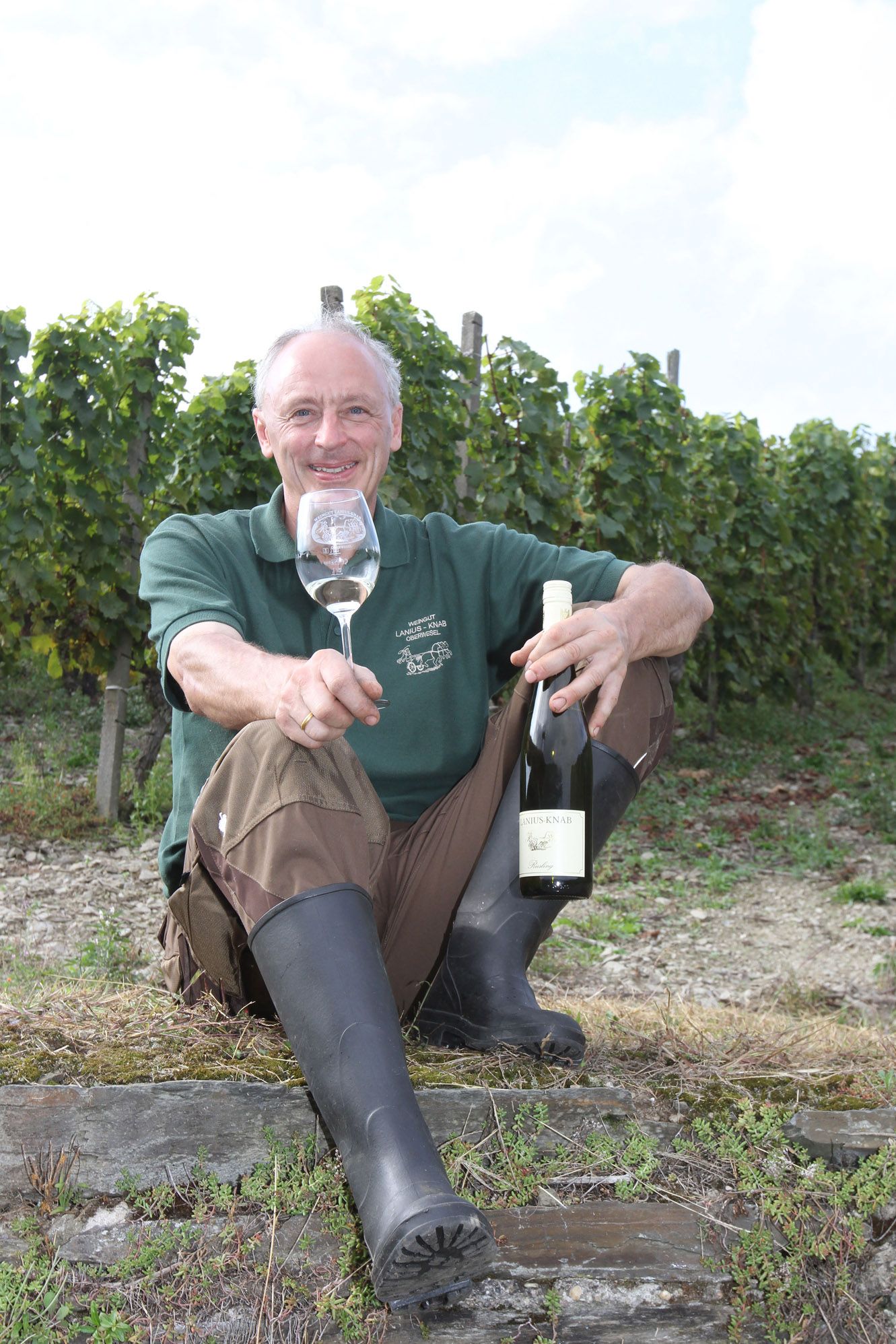
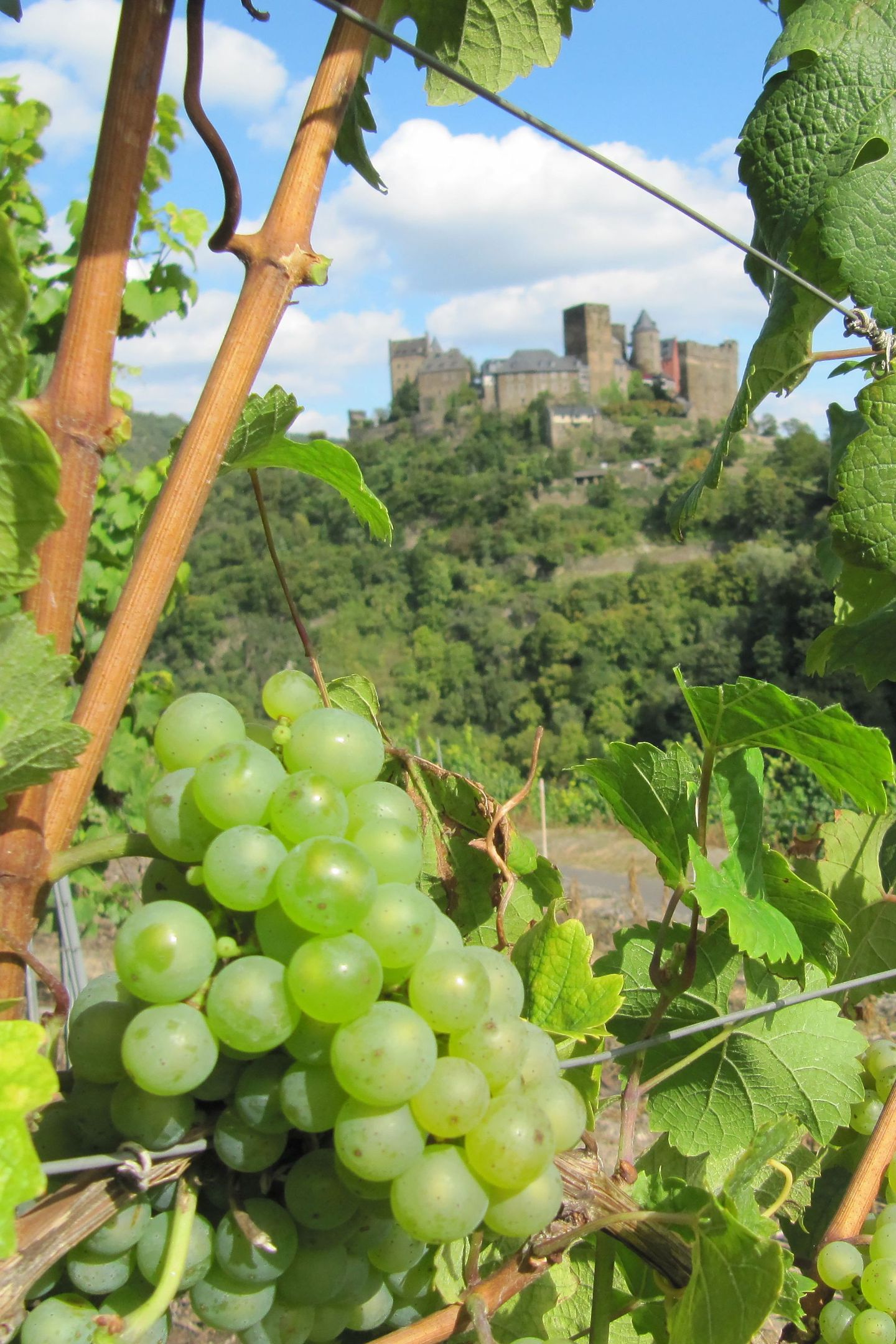
VDP: What is your winery philosophy?
Jörg Lanius: Being a winegrower means living in nature and with nature. The aim is to make the complex combination of soil, climate and weather conditions assignable, recognisable and tastable in the wines. Every wine in each year is unique and the authenticity of nature is always captivating. The distinctiveness of wines arises more from the vineyard than the cellar: if you bring home good grapes, you will also have good wine. Despite this, the result of nature and work is not just wine. The result is expressed in the emotions of those who drink wine.
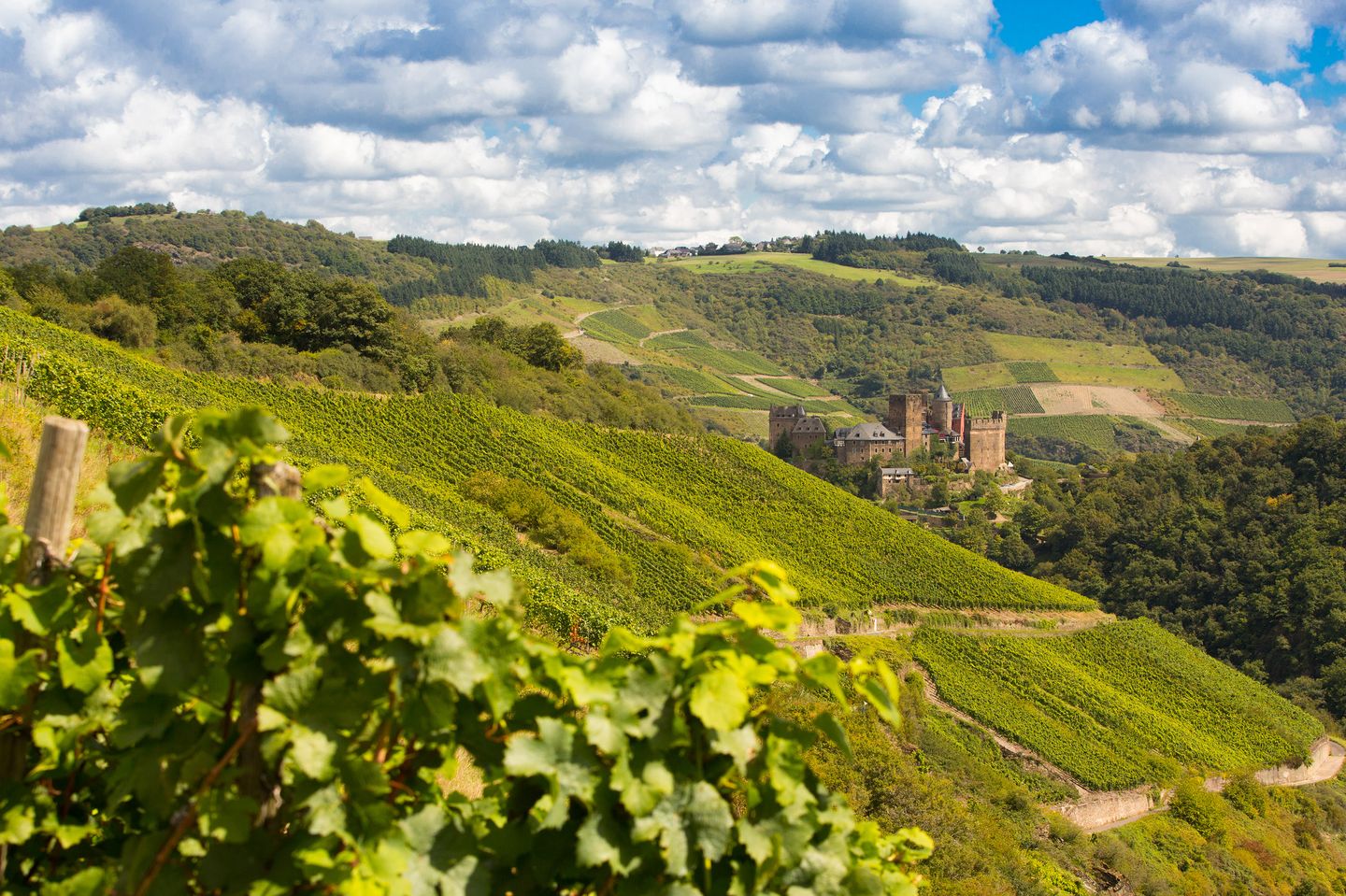
VDP: Do you have a particular wine style?
Jörg Lanius: Of course, Riesling is my favourite grape variety - how could it be any different? Its style is lean, filigree and harmonious. The terroir is clearly comprehensible.
VDP: Which of your wines would you recommend to someone who doesn’t yet know your winery – as an introduction, so to speak?
Jörg Lanius: You should start with one of the VDP.GUTSWEIN. They already clearly show their origin. Here you learn to appreciate our wines, so to speak “love at first sight”. Building on this, you can then advance from VDP.ORTSWEIN to VDP.ERSTE LAGE® and VDP.GROSSE LAGE® wines.
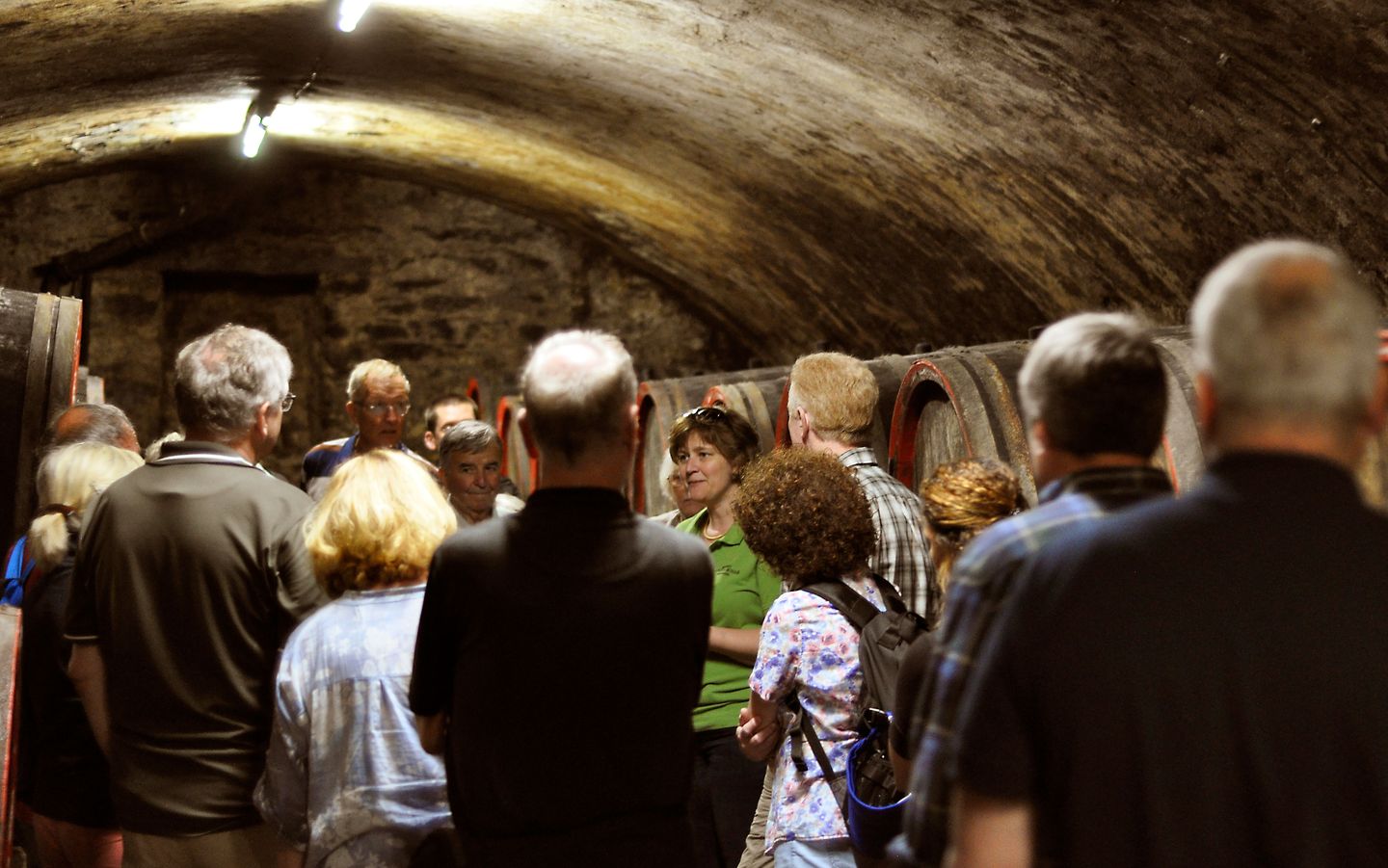
“ONLY WHEN EVERYTHING IS PERFECT, STARTING WITH VDP.GUTSWEIN, CAN YOU BE FULLY SATISFIED.”
VDP: Of which wine are you particularly proud?
Jörg Lanius: With the highest qualities, you set the bar for yourself at the very highest. Of course, you are particularly proud of those wines, but only when everything is perfect – from VDP.GUTSWEIN to VDP.GROSSE LAGE® wines – can you be completely satisfied.
VDP: Why did you become a vintner?
Jörg Lanius: I grew up on a mixed agriculture farm. My parents were farmers with heart and soul. The vineyards were still there from my grandparents. Although they were of the highest quality, they were cultivated without much effort in the vineyard and the cellar. That annoyed me quite early and I already decided at school age that I would take the vineyard and cellar into my own hands. As a self-taught wine maker, I was almost finished before I started training as a winemaker and I already had a clear idea of what I wanted.
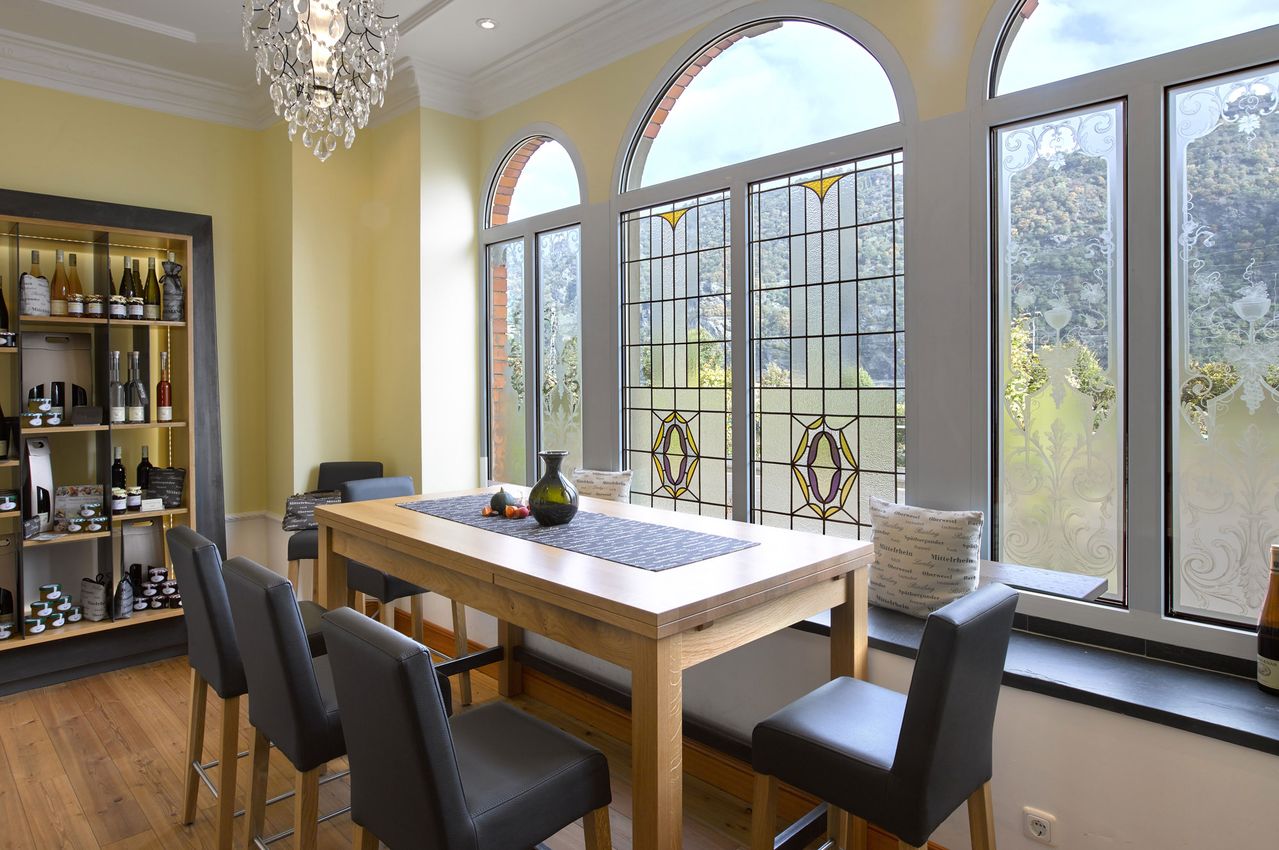
Riesling
VDP.GUTSWEIN
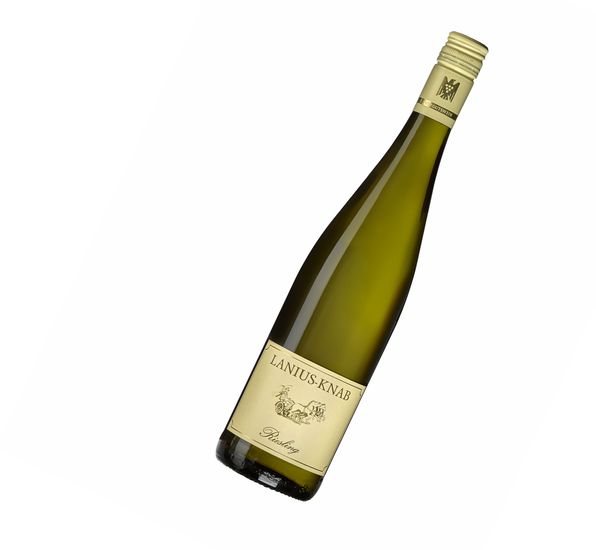
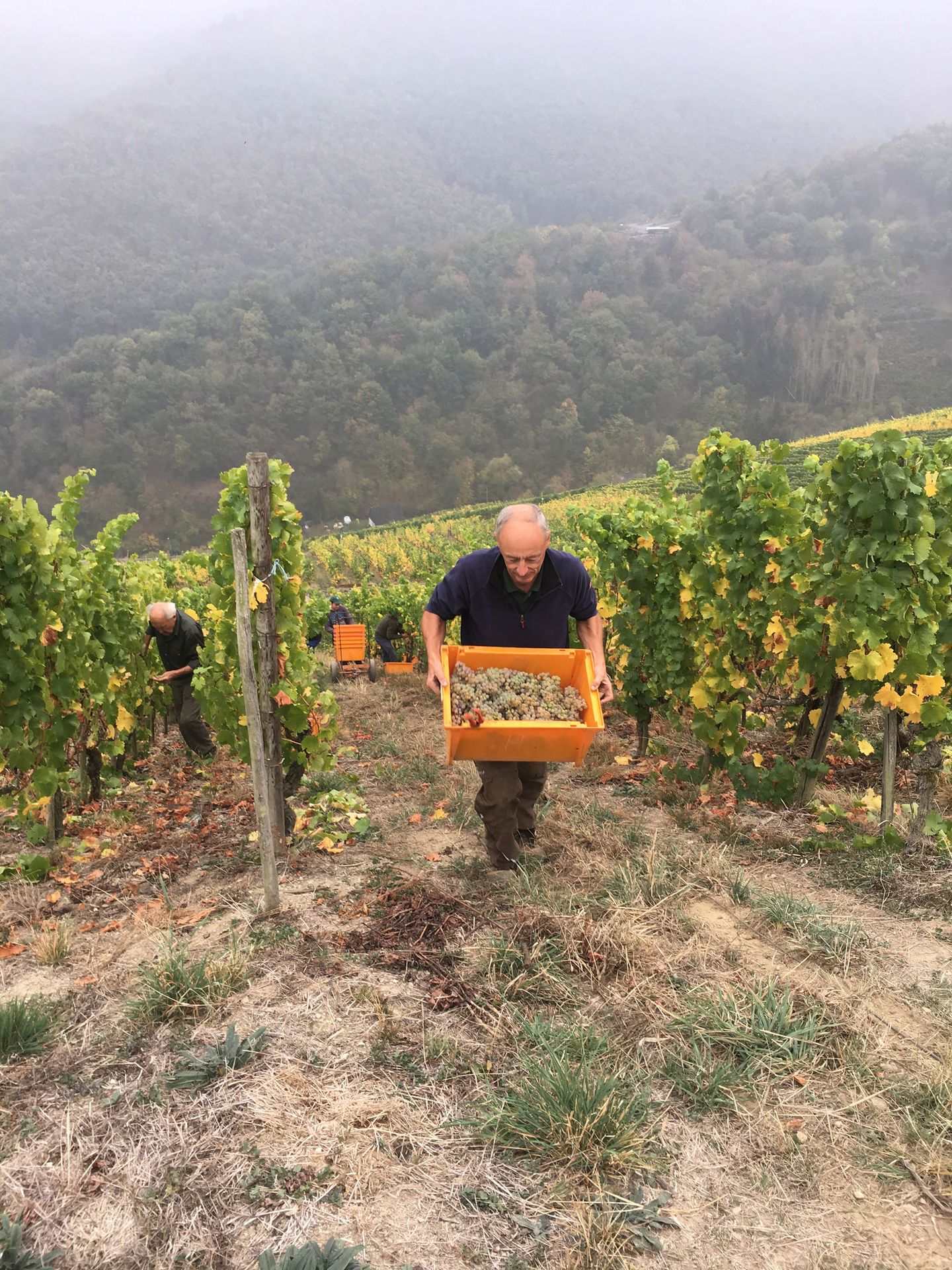
VDP: What are your next goals?
Jörg Lanius: Getting a bit more perfect in the details every year. On a larger scale, my wife and I still have a few projects in the planning stage. The winery is on the right track; we’d still like to grow. We will offer yet more service to our wine friends in the future by adding to our current program.
VDP: How do you combine tradition and innovation?
Jörg Lanius: Steep-slope viticulture is pure tradition in itself. I try to implement all innovations to make us fit for the future, but always from the point of view of quality and not for just the sake of innovation. Beyond that, of course, there are other beautiful traditions that we like to cultivate. For example, we still practice the blessing of St. John’s wine on 27 December. Of course, we are happy to take part.




